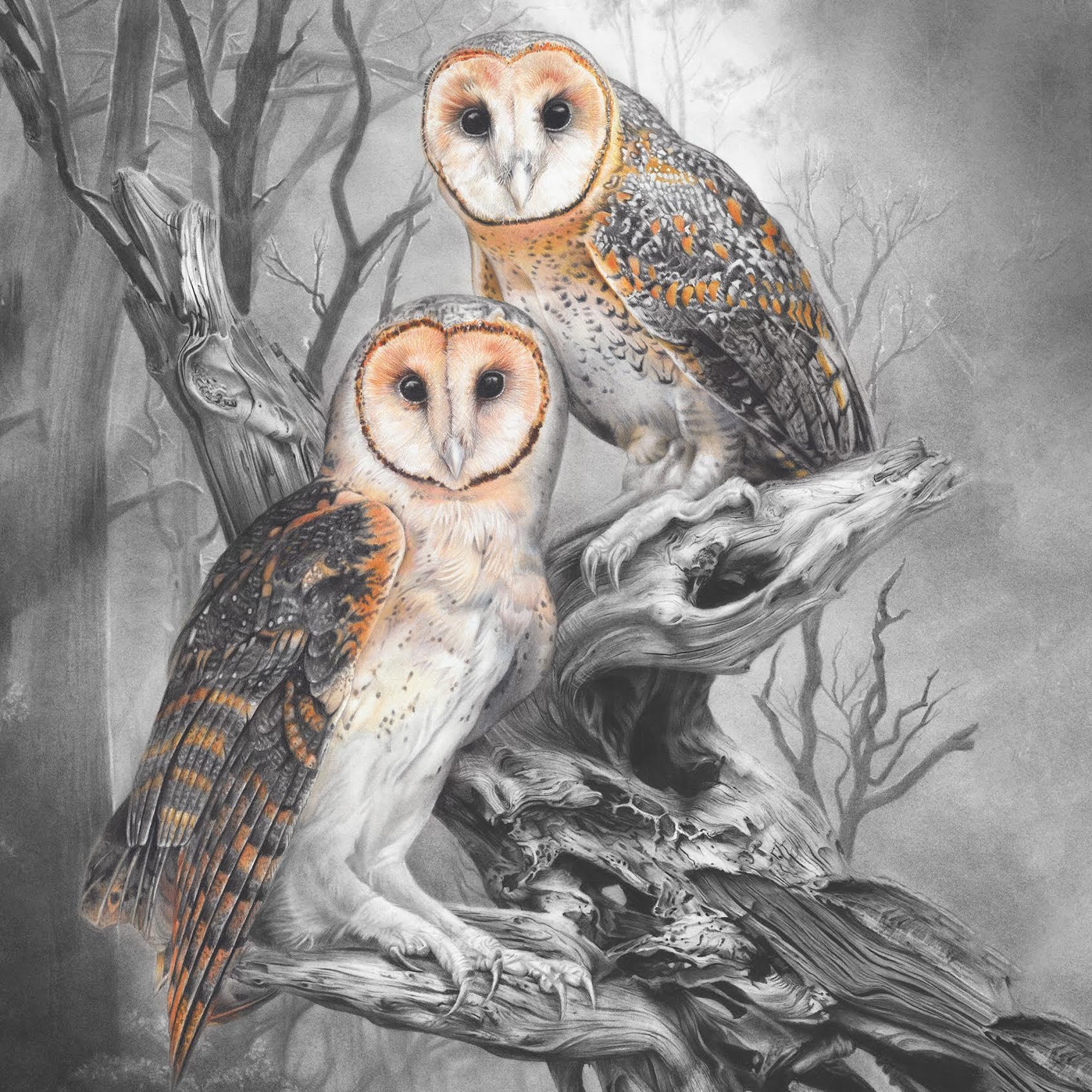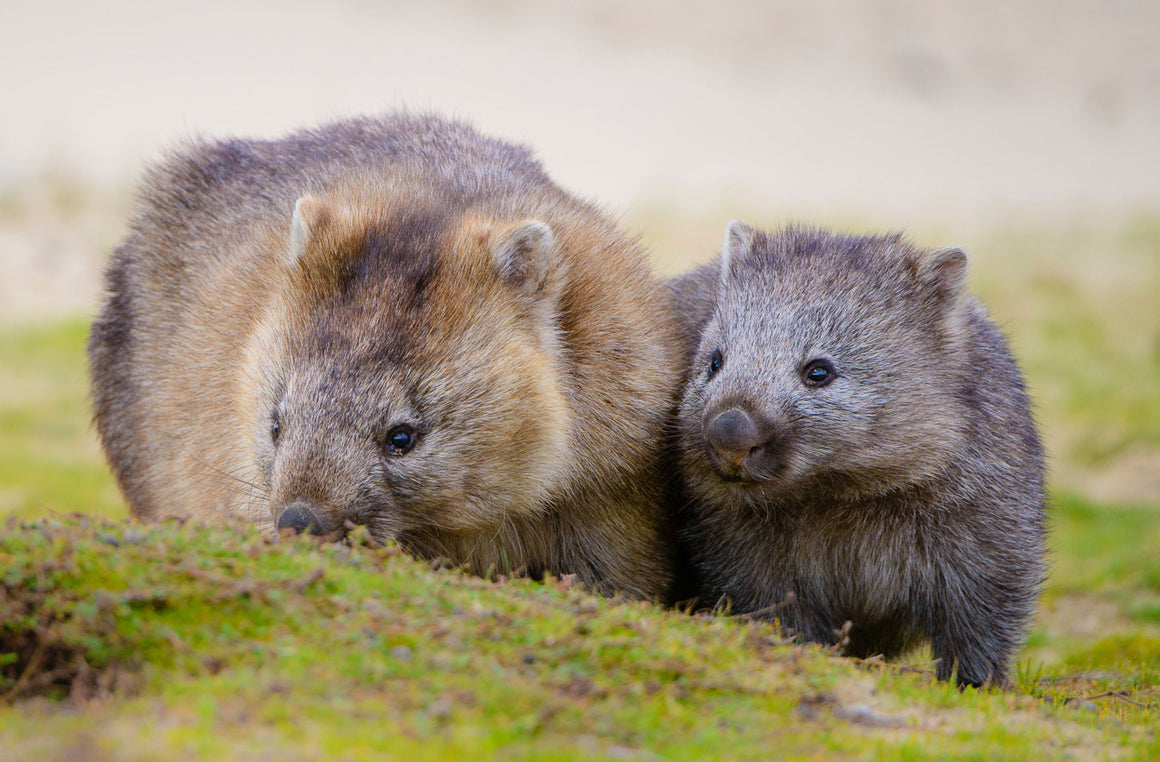Fiona Francois - Tasmanian Masked Owls
$200.00
Fiona Francois
Tasmanian Masked Owls
Tasmanian Masked Owls
Digital print of original drawing
41 x 41cm
Limited edition of 25
Artist's Statement
The Tasmanian masked owl is the largest subspecies of the Australian Masked Owl and the largest Tyto Owl in the world. A formidable bird of prey, the Tasmanian Masked owl inhabits the outskirts of old-growth forests nesting and roosting in the hollows of trees. The owls mate for life and occupy a permanent territory. They are now classified as endangered as there are estimated only 500 breeding pairs left in Tasmania and their habitat is diminishing as a result of forest clearing, poisoning and overcrowding of other species. I’ve chosen to portray these majestic birds resting on an old gnarled tree shrouded in fog in the early morning light. I have used powdered charcoal for the background and the birds in graphite and charcoal pencil with coloured pencil for the colour accents. I’ve always regarded owls as a mystical bird, as folk lore and personal anecdotes abound of these magical creatures, and they have captured my imagination.
-------
This work was submitted by the artist as part of Wild Island's biennial Threatened Species Project. Proceeds from the sale of this work have been donated by the artist and Wild Island to organisations directly working in species support.
Threatened Species Project
A WILD ISLAND EXHIBITION RAISING AWARENESS OF TASMANIA'S THREATENED SPECIES
There are 683 species of plants and animals, including insects and other invertebrates, on Tasmania's Threatened Species List. Yes, there are the iconic ones so many people know about, but there are numerous species that are tiny, little known or ‘less attractive’, which are no less important to our rich and varied eco-system. This new exhibition will expand our understanding of the range & diversity of threatened species and educate of their plight. It also aims to raise much needed funds to go towards their support. It’s a small thing we can do during an age of climate change, mass species decline and habitat loss.
Artist's Statement
The Tasmanian masked owl is the largest subspecies of the Australian Masked Owl and the largest Tyto Owl in the world. A formidable bird of prey, the Tasmanian Masked owl inhabits the outskirts of old-growth forests nesting and roosting in the hollows of trees. The owls mate for life and occupy a permanent territory. They are now classified as endangered as there are estimated only 500 breeding pairs left in Tasmania and their habitat is diminishing as a result of forest clearing, poisoning and overcrowding of other species. I’ve chosen to portray these majestic birds resting on an old gnarled tree shrouded in fog in the early morning light. I have used powdered charcoal for the background and the birds in graphite and charcoal pencil with coloured pencil for the colour accents. I’ve always regarded owls as a mystical bird, as folk lore and personal anecdotes abound of these magical creatures, and they have captured my imagination.
-------
This work was submitted by the artist as part of Wild Island's biennial Threatened Species Project. Proceeds from the sale of this work have been donated by the artist and Wild Island to organisations directly working in species support.
Threatened Species Project
A WILD ISLAND EXHIBITION RAISING AWARENESS OF TASMANIA'S THREATENED SPECIES
There are 683 species of plants and animals, including insects and other invertebrates, on Tasmania's Threatened Species List. Yes, there are the iconic ones so many people know about, but there are numerous species that are tiny, little known or ‘less attractive’, which are no less important to our rich and varied eco-system. This new exhibition will expand our understanding of the range & diversity of threatened species and educate of their plight. It also aims to raise much needed funds to go towards their support. It’s a small thing we can do during an age of climate change, mass species decline and habitat loss.


